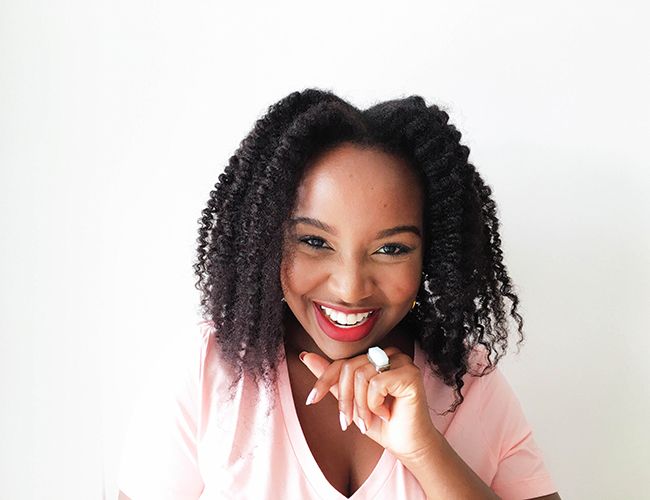

I have 20 inches of very coily hair so I tend to go for hair treatments that add slip to make my hair more manageable. Based on my experience, I’ve found that clay masks tend to do the opposite. They leave my hair feeling stripped, tangled and overwashed.
In fact, the very first time I used a clay mask on my natural hair, I spent a good hour or so washing it off. Turns out, it wasn’t the refined type that can be used on curly hair and so chunks of it got lodged in between my strands. Needless to say, it wasn’t fun at all. It also left my hair feeling rather stripped – possibly because I’d used undiluted apple cider vinegar as my base. My hair did not turn out like the YouTube tutorial I had so enthusiastically emulated. No, my curls weren’t “popping” and no, my hair was not shiny. Instead, it looked dull, lifeless and weighed down. I felt that my one experience with clays had delivered less than I’d bargained for. I felt as though clay masks were just not for me, or so I thought.
This changed recently, when I came across Carols Daughter’s Rhassoul Clay Softening Hair Mask. This is one of four products in Carol’s Daughter’s new range of products for “overworked and overwashed” hair.
Based on my aforementioned experience with clay masks, using Rhassoul Clay as a base for “overworked and overwashed” hair seems rather counter-intuitive, right? So how is it then that this formulation is different from my DIY one?
1. Good Mix of Oils
Now, remember how I mentioned that my hair prefers hair treatments with slip? Well, oils add lots of slip to conditioning treatments. Carol’s Daughter’s Rhassoul Clay has shea butter, sunflower seed oil, argan oil, vitamin E oil and soybean oil in its formulation. These oils help make hair pliable.
2. Good Mix of Emollients
The ingredients list includes cetearyl alcohol and behentimonium chloride. Now don’t be too dismayed by the fact that it contains alcohol. Some alcohols are actually good for hair. Cetearyl alcohols are emollients and they are known to soften the hair. They provide slip (yes that word again!”> to our favorite conditioners, which allows us to detangle our hair better. (Aha! No wonder this product might just work on my hair.”>
3. Water + Aloe Vera Juice Add a Boost of Moisture
My natural hair is prone to dryness, so for me, it is imperative that any product I use has water as its first and most prominent ingredient. Aloe vera juice is also a great source of moisture. Many health scientists celebrate it for its antioxidant and anti-bacterial properties.
My results
I found that Carol’s Daughter’s Rhassoul Clay was gentle on my type 4 coily hair. As compared to the all-purpose dry Bentonite clay that I’d previously tried out on my hair, I found that Carol’s Daughter’s Rhassoul Clay applied more evenly along the length of my hair. It was also a lot easier to rinse out and I didn’t have to spend hours dislodging chunks of clay from my strands.
While I was pretty satisfied with my results, I certainly wouldn’t use this clay mask as my weekly treatment. I found that it wasn’t as moisturizing as some of the holy grail deep conditioners I have come to love over the course of my hair journey. I would, however, use Carol’s Daughter’s Rhassoul Clay every three or so months to lift any build-up from my hair. This line is formulated for “active living,” so if you exercise or swim regularly and have to wash your hair more frequently as a result, you may want to check this out and find a frequency that works for you.
So there we have it, clay masks can work well on coily hair if they’re well formulated. It’s important to get the clay formulation right. In this case of Carol’s Daughter’s Rhassoul Clay Softening Mask, the clay used in the formulation is of a good grade. But it also matters what else is in the mix. Oils, emollients and good ol’ water seem to go a long way in balancing out the drying effects of a clay.
Have you tried a clay mask on your hair? If so, share your experience with us in the comments below.
Further reading:
